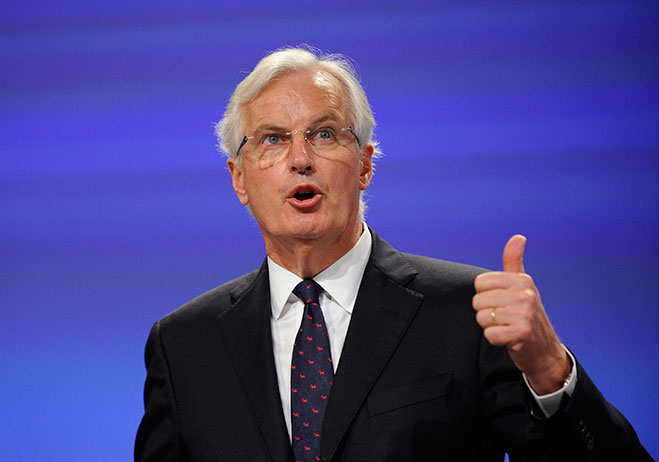
The EC has confirmed that it will be going ahead with plans to cap fees on credit and debit card payments. Retailers and consumers have long since saddled with charges the EC deems “fragmented and expensive”. The EU payment market is estimated to be worth €130bn annually.
The EC plans are designed to cap “interchange fees” at a maximum of 0.3 percent of the transaction, a move that would ultimately benefit consumers who are often unaware of the charges. Retailers have suggested that capping the fees they pay to banks and card companies would lead to lower prices in stores.
The proposals, which would initially only apply to cross-border transactions before being phased into member states, would limit debit card fees to 0.2 percent of a transaction and credit card fees to 0.3 percent. At the moment credit card transactions can cost retailers as much as 0.9 percent of any sale.
“The proposed changes to interchange fees will remove an important barrier between national payment markets and finally put an end to the unjustified high level of these fees,” said EU Internal Market Commissioner Michel Barnier.
A statement by the ECC suggests that the plans will also limit the amount of ‘additional payments’ that are sometimes passed on to customers. “Under the Payment Services Directive, airlines and others will no longer be able to demand additional payments from customers paying by the most commonly used cards, for example at the end of the online purchasing process. The proposal would reduce the maximum amount consumers might need to meet from their own pockets in the case of fraud or incorrect transactions to €50 from €150.”
“The interchange fees paid by retailers end up on consumers’ bills,” says Joaquin Almunia. “Not only are consumers generally unaware of this, they are even encouraged through reward systems to use the cards that provide their banks with the highest revenues.”
European retailers have been largely welcoming of the move, and see current fees as unjustifiably high. The British Retail Consortium (BRC) has suggested that the proposed cap could save the local industry up £362m every year. In a statement Helen Dickinson, director general of the BRC said the group was delighted with the proposal. “Capping these excessive and anti-competitive fees will support the UK retail industry by £362 million a year, boosting the industry’s ability to invest and innovate while continuing to deliver lower prices and value for customers.”
Credit card companies have been critical of the move by the EC, suggesting there is no evidence that a cap will bring down costs for consumers. They insist that the fees charged only cover the costs of covering the transactions and suggest that if such legislation is passed an annual card fee might need to be charged to customers. “Secure, efficient, competitive and innovative electronic payments are crucial to the European economy,” Pater Ayliff, president and CEO of Visa Europe, said in a statement. “Payment cards provide huge benefits to consumers, retailers and the economy as a whole and we are concerned that these proposals will be detrimental to the innovation that will support European economic growth. There is little evidence to support the claims that these proposals will be beneficial to consumers.
“We recognise the commission’s steps towards creating a level playing field for all current and future payment market participants but we believe they have fallen short of this goal by largely excluding three party schemes such as American Express, non-card E-and-M-commerce payment solutions and primarily focusing on four party card systems like Visa Europe.”
Market analysts are still on the fence of what effects, if any, the proposed cap will have on European consumers, as banks and card companies are likely to look for revenue elsewhere- namely by applying annual card fees- if their current system is limited.
“Bankers will need to make money somewhere and it has been suggested that an annual fee would replace transaction fees, but this raises issues of its own. Depending on how it is structured, an annual fee could penalise those who use their cards infrequently,” said James Walton, chief economist at IGD. “This move shows signs of an increased willingness on the part of EU authorities to intervene in private contractual arrangements that are seen as contrary to shopper interests. It will be interesting to see where this will stop, once the precedent is set.”

